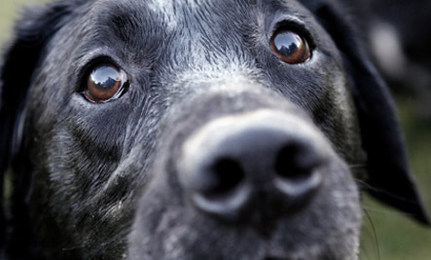Does a dog’s nose know best? Recent research suggests yes!
In a Japanese study conducted in January 2011, a trained canine successfully detected early signs of bowel cancer in more than 9 out of 10 cases. Previous studies have yielded similar results with dogs sniffing out prostate, skin, bladder and lung cancer.
The latest study, reported in the journal Gut, involved breath and stool samples from people with bowel cancer. Marine, an 8-year-old Labrador, was presented with five samples, one with cancer cells and the other four without. She correctly identified the cancer sample 33 out of 36 times when smelling the patients’ breath, and 37 out of 38 times when smelling the stool samples.
Researchers say it may be difficult to use dogs to find cancer in clinical practice, due to the expense and time necessary for training. However, they hope the studies will help identify cancer-specific organic compounds that create the smell that dogs notice. Once that organic compound is determined, scientists could potentially create an electronic equivalent to a dog’s nose to test for early signs of cancer.
As of now, human science lags behind canines, when it comes to detecting cancer. “Only the dog knows the true answer,” says Dr. Hideto Sonoda from Kyushu University to a BBC reporter. “The specific cancer scent indeed exists, but the chemical compounds are not clear.”
Adapted from an article by Megan Zehnder




